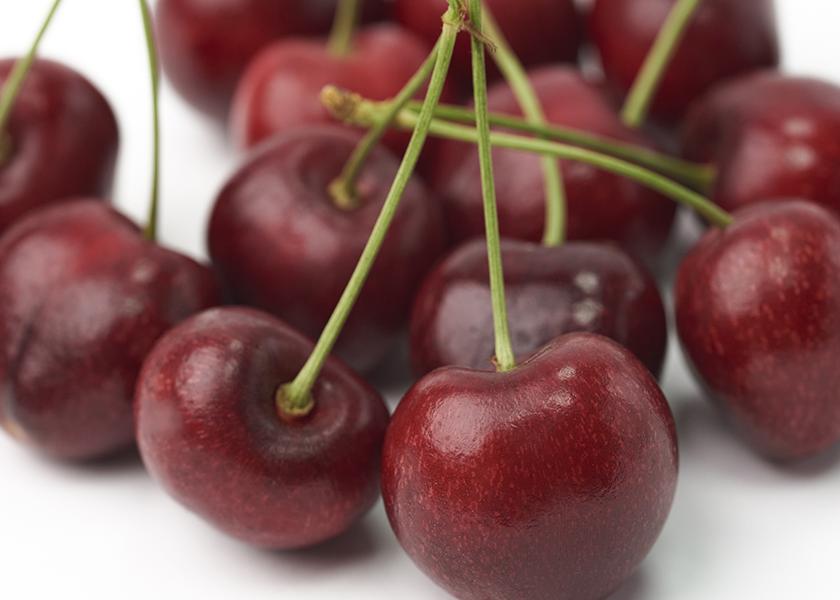IFG expands its low-chill Cheery Cherry line

International Fruit Genetics, a Bakersfield, Calif.-based breeder with more than 48 patented table grape varieties and 10 patented sweet cherry varieties, has released three new trademark names for its growing Cheery Cherry line.
Cheery Cupid, Cheery Nebula and Cheery Chap will join the line that already includes Cheery Moon and Cheery Glow cherries.
Patented as IFG Cher-ten, Cherry Cupid is a heart-shaped fruit with a sweet-tart taste. Cheery Cupid is “performing exceptionally well in all test locations,” according to a news release. Fruit from commercial orchards will begin to ship in 2023 from Spain and Chile, with cherries from California available in 2024.
Cheery Nebula, patented as IFG Cher-eight, is a big round cherry with a long green stem and intense taste, says IFG. The cherry arrives early in the harvest window, with a low-chill requirement of less than 300 chill hours.
Patented as IFG Cher-nine, Cheery Chap is another early season cherry with intense color and taste and a chill requirement of less than 300 chill hours, the release said.
“IFG is devoted to revolutionizing cherries as we know them — we are changing up the cherry game to Cherry 2.0 in fact,” Alwyn van Jaarsveld, IFG international commercial cherry manager, said in the release. “Our program develops varieties that are early harvests with low to high chill requirements, allowing our delicious line of cherries to be adaptable to more regions around the world, expanding global cherry production. This allows us to ensure our cherries are crunchy and sweet, with great flavor, year-round.”
IFG’s low-chill cherries are all early harvest cherries that are being grown in California, Spain, Chile, Australia and South Africa.
“Traditionally, there are many chill requirements to grow a great cherry, but IFG is changing that with our early and ‘low chill’ cherry varieties,” said Antonia Sánchez-Labbé, international technical manager, cherries and country manager cherries, North America. “Until now, most cherry trees have required 800-1,000 chill hours of temperatures below 45 degrees Fahrenheit (7.2 degrees Celsius). IFG has created varieties of cherries that need less than half that much.
“Additionally, IFG selects very specifically for our breeding program — not only do we use modern technologies to ensure that the genetic material used in our breeding program is exactly what we are looking for, but we also grow the trees in a typically harsh environment to weed out the weaker progeny and ensure robust, hardy varieties that are grower-friendly and can withstand the rigor of warm, dry summers while still producing a good crop,” Sánchez-Labbé continued.
IFG says all of its varieties are non-GMO and are tested to maintain quality over weeks of storage, allowing for transport to both domestic and foreign markets.







